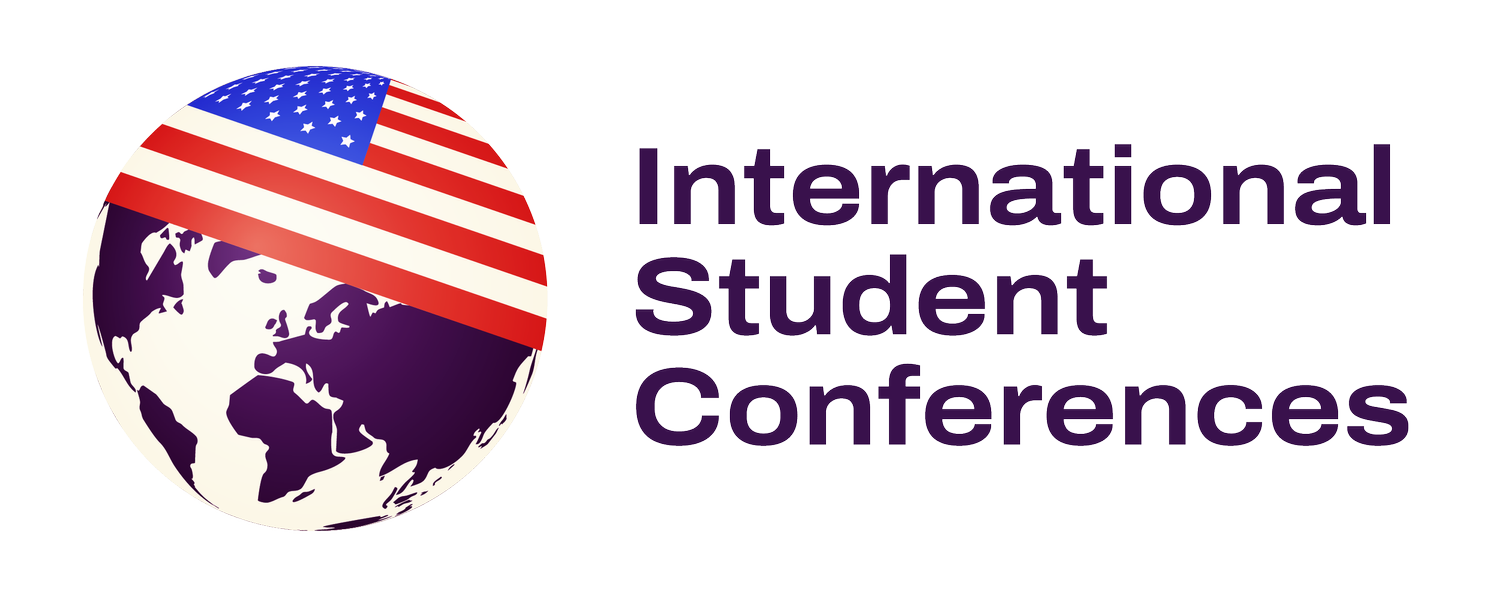Three Things a Snowstorm Taught About Cooperation
January 4 – 10, 2025. Washington D.C.
The 9th U.S.-Japan-Korea Trilateral Forum brought twenty-six student leaders to Washington to learn about technology and cooperation. A Monday snowstorm taught them both — simultaneously.
Lesson One: Plans Are Less Important Than People
The schedule looked perfect on paper. Embassy visits, think tank briefings, expert panels, cultural activities, Symposium preparation. Seven days of carefully coordinated programming designed to teach Executive Committee members from JASC 77, KASC 18, and ChASC 5 everything they'd need to understand trilateral cooperation.
Monday's extreme snow erased two days of that perfect schedule.
What happened instead: virtual programming that forced everyone to practice the flexibility they were supposed to be learning about. Touchstones workshop on facilitating discussion via Zoom — learning equal participation strategies while trying to implement them in real-time with frozen cameras and spotty internet.
State Department officials joining from home offices to discuss Women, Peace and Security initiatives. One official's cat crossing the screen. Someone typing in chat: "Best panelist."
The informality broke down barriers faster than formal programming would have. Hard conversations about gender equity in diplomacy became more accessible when everyone was clearly human — sweatpants, home offices, pets interrupting.
Think tank representatives from Korea Economic Institute, Wilson Center, Sasakawa Peace Foundation USA, and Mansfield Foundation explained their trilateral work from wherever they'd been when snow hit. Jim Schoff lectured on AI security. Auto industry experts from JAMA and Kia discussed green energy manufacturing.
All adapting. All demonstrating that cooperation requires flexibility.
By Wednesday, when in-person programming returned with Japanese Embassy tours and Korean Cultural Center gimbap-making, the group had already learned the week's most important lesson: circumstances change, you adjust, the work continues.
Lesson Two: Genuine Exchange Requires Genuine Difficulty
Saturday's trivia night at Dupont Italian Kitchen wasn't icebreaking — it was assessment. Who'd done the reading on AI security and semiconductor policy? Who could explain Korea's tech regulation approach? Who understood trilateral cooperation well enough to teach it?
Most of them could. This created immediate problem: no one could coast.
Sunday's National Gallery assignment seemed simple until one group spent forty-five minutes debating digital restoration. Is it preservation or alteration? Does honoring tradition require keeping it unchanged or making it accessible? Who decides what gets preserved?
Mid-argument, someone realized: "We're not talking about art anymore."
They were talking about how societies balance innovation with tradition. How you respect the past while building the future. Whether cooperation means compromise or finding third options nobody's considered yet.
The difficulty made it valuable. Easy conversations don't change perspectives.
Counselor Changsoo Kim from the ROK Embassy understood this. His Korean Cultural Center talk didn't give diplomatic talking points — he told students the messy truth about managing relationships when governments disagree. One student later wrote he was "intelligent and candid."
The candor mattered more than polish.
Thursday's Symposium put students on stage with experts. First panel was professional — Melanie Berry moderating Kellee Wicker, Kayla Orta, and Jim Schoff on emerging technology policy.
Second panel was nervous — Emile Shah and Mayu Kitahara from JASC, Valerie Grau and Somin Hwang from KASC presenting student analysis. One stumbled. A slide failed. They kept going.
But they offered something the expert panel couldn't: perspective from people who grew up with the technology being discussed. What does AI mean when algorithms shape how you understand other countries? When does technology enable cooperation versus create new barriers to trust?
Their answer wasn't simple, which made it honest.
Lesson Three: The Work Is Larger Than Any Single Conference
Twenty-six students arrived representing JASC 77, KASC 18, and ChASC 5. Different conferences, different bilateral relationships, different challenges ahead planning summer 2025 programs.
They could have stayed separate. Worked in conference-specific groups. Treated the week as professional development for their individual responsibilities.
Instead, they became a network.
Making gimbap together — hands covered in rice, laughing when rolls fell apart. National Gallery debates that started about art and ended about values. Virtual sessions where someone's cat became "best panelist." Korea Foundation reception where formal networking became genuine conversation.
One student wrote: "I was overwhelmed by the warm heart from other delegates. I felt the entire atmosphere of this Trilateral is very supportive."
Another: "I expected the schedule to be too packed, but the actual was just right and I had enough time to enjoy the time shared with other ECs building precious friendships."
They discovered their conferences don't exist in isolation. JASC addressing U.S.-Japan relations, KASC working on U.S.-Korea cooperation, ChASC navigating U.S.-China tensions — all part of the same mission. Different bilateral relationships, same commitment to people-to-people diplomacy.
The Trilateral Forum connected them not just intellectually but personally. When they return to planning their summer conferences, they'll know they're not working alone.
What Monday's Snow Actually Taught
A snowstorm forced adaptation. Virtual programming demonstrated flexibility. In-person sessions proved physical presence matters but isn't always possible. The Symposium showed students can hold their own alongside experts.
But the real lesson: cooperation isn't abstract concept studied in workshops. It's practiced in real-time when circumstances change, when difficult conversations get uncomfortable, when people from different backgrounds choose to become a team despite having every reason to stay separate.
Twenty-six students proved that in seven days. The hundreds more joining JASC, KASC, and ChASC in summer 2025 will benefit from what they learned.

